I’m reading two different documents now which are both, in a way, about testing, but at opposite levels of thinking. The first is the National Assessment of Educational Progress (NAEP) Technology Literacy Framework, aimed at higher order thinking skills. The second, a brilliant new book called Teach Like a Champion, focuses on teaching literacy and math skills to underprivileged students. Though both worth discussing in their own right, at the moment some contrasts between them have got me thinking.
At SimBiotic, we are in the business of developing students higher order thinking skills with our virtual biology labs. When students do one of our labs, we want them to learn a set of biological concepts, and we think (based in part on research) that they will do this best if we guide them to more than just memorization and rote application of the material. Higher-order thinking is something of a nebulous concept, but nonetheless important. The most famous attempt to make it concrete is Bloom’s Taxonomy which ranks thinking skills from Knowledge (at the bottom) through Synthesis and Evaluation (at the top). The higher one goes, the higher the “order” of thinking skill – i.e. just remembering something is deemed less advanced than being able to synthesize multiple pieces of knowledge and analysis into something new.
Most professional jobs rely on these higher order skills, including our work developing labs at SimBiotic and the work instructors do teaching kids. This has led to such skills becoming a major focus of educational research. It turns out there is good evidence that some styles of teaching develop these skills more than others, and moreover, developing higher-order skills is not inconsistent with developing lower order skills. Nevertheless, our huge testing apparatus in this country is primarily focused on the lower order skills, partly because those are what you can measure with multiple choice tests.
The new NAEP Tech Literacy framework is trying to break out of that. It is an attempt to define higher-order skills in a way that they can be measured using computerized tests, where students have to, say, perform an experiment or analyze some data and the computer can deduce from their actions at what level they can think about that subject. This is really exciting to me, because the big tests drive a lot of what and how things are taught in this country. Tests that can capture higher-order skills would promote more teaching of higher-order skills, which I believe would make education both better and more interesting for our students.
So with all that background, with which I largely agree based on my own experiences and on much of the research and development that I’ve helped with at SimBiotic, it was something of a splash of cold water to start reading Teach Like a Champion. The book aims to help K-12 teachers in schools serving poorer students be more effective. I’ll blog again about what Doug Lemov, the author, recommends, but he starts by comparing “champion” teachers and schools to others using, unapologetically, state and national test scores focusing on lower order skills. Why is that valid? Lemov’s argument is that although these lower order skills are not all that is needed by students, without them the higher order skills are not possible. If you have multiplication down cold, that frees up a lot of brainpower to analyze and evaluate data at a higher level. You don’t waste thought on the scut work of multiplying numbers. Similarly, if you know proper grammar like the back of your hand, you can spend your thinking time on the insights you are trying to write about, rather than on the technique of writing it properly so others can read it.
Although I don’t 100% buy this argument (I actually don’t know my multiplication tables cold), I find myself agreeing with it 90% and thinking again about our virtual labs and the way we do simulated biology experiments. In practice, although we are aiming for higher order skills, we give students a lot of guidance. We really aim lower through many parts of each lab, only going to the higher levels at certain points. Despite our professed desire to engage higher order thinking skills, perhaps we have found that champion labs spend a lot of time on lower order skills as well, to get students to the point where the lower order is automatic and their brainpower is free to roam up the scale of thinking.




